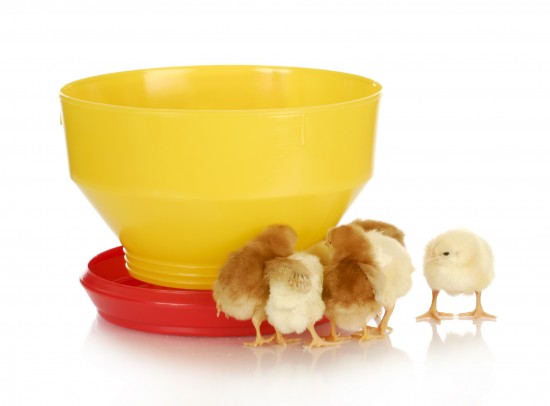One major problem you encounter as a cat owner involves your cat's use (or non-use) of her litter box.
This is probably one of the most frustrating issues that arise in caring for your new cat. You buy a litter box, often an expensive one, fill it with good quality litter, and then find your cat defecating or urinating somewhere else in the house. Even more frustrating is when you discover that your cat 揹oes her business?near the litter box, but not in it.
You have, of course, taken your cat to the vet who has pronounced her 揾ealthy? So, you've ruled out any physical ailment. You've changed the litter; you've cleaned the box. You've made sure no other cat is going in her box.
And yet, she's still doing it - you still have problems:
?your cat is going somewhere else in the house
?your cat is going next to the litter box
?your cat is going half in and half out
The last possibility can often be solved by getting a larger box: something resembling a tub that your cat can still get into and out of without too much trouble but will confine the scat (not the cat) to the tub.
But the first two difficulties often remain.
The Invisible Culprit
What could be the problem? I'd like to pose a possible answer in one word: plastic.
Most litter boxes, no matter how elaborate or expensive, are made of one plastic or another.
Plastics are polymers卙uge molecules made by chemically 搒tringing together?smaller molecular units. Sometimes the units are all identical, sometimes they vary in composition and recur with some regularity. However all plastics are 搊rganic?compounds.
In case you've forgotten your high school chemistry, organic compounds are primarily made up of Carbon and Hydrogen, sometimes with other elements such as Nitrogen, Phosphorous or Sulfur thrown in.
The plastics used in constructing most cheap cat litter boxes are relatively flexible - they can be easily bent. When you pick yours up to clean it, you'll find it bending as you carry it out the door. It's composed of a flexible plastic.
Flexible plastics are made that way by the addition of what's termed 損lasticizers? Plasticizers are small organic molecules, usually phthalate esters that are added to the polymer to increase its flexibility.
Other litter boxes, particularly the self cleaning ones, are not so flexible. Since they are self cleaning, they are not designed to be picked up, and are generally constructed of several smaller, harder, plastic parts.
Hard plastics are formed in molds (forms into which the plastic is poured, where it hardens and takes shape). The molds are first coated with a 搈old release?agent to enable the removal of the plastic part from the mold - otherwise it would stick to it and stay there.
Both materials - the plasticizer and the mold release agent- remain as a residue on (or in) the plastic. And both materials can 搊utgas? that is, be released into the air, immediately after your litter box has been manufactured, and, in the cases of flexible plastics, from then on.
Even though you can't smell anything?
So, if you've tried everything to induce your cat to 揼o?in her litter box and nothing has worked, could it be that your cat is sensitive to the plasticizers or the mold release agents used in the manufacture of her litter box? Even though you can't smell anything, maybe your cat can.
Plastic is basically an unnatural material. It wasn't found in nature before Man arrived and started making disposable food containers and litter boxes, and it wasn't a factor in the evolution of cats.
Maybe your cat is sensitive to it, and is making you aware of that fact by defecating somewhere else, far from this source of annoyance. Or maybe the plastic is triggering some unnatural behavior in your cat, causing her to defecate half in and half out.
Don't tell your guests?
Try changing the material of the litter box. Try a glass litter box.
But, you say, there aren't any glass litter boxes for sale! Where can I get one?
I went to glass some time ago by converting a shallow baking dish into a litter box. My wife used it for baking scalloped potatoes, and I unwittingly grabbed it for a different use, much to her卽h卍ispleasure.
Granted, a baking dish is shallow and the litter is easily thrown out by a digging cat, but I place newspaper under it (not a plastic mat), to catch the thrown litter. I've owned two cats in succession now, and neither has had a problem 揹oing their deed?somewhere else.
So try it. Of course it goes without saying that once you convert the baking dish into a litter box, it's the end of using it to cook scalloped potatoes for your guests when they come over for dinner.
Or, at least, it's a good idea that, after they've eaten, to keep that fact to yourself.

 How Do Working Dogs Communicate With And Alert Their Handlers Of Things?
How Do Working Do
How Do Working Dogs Communicate With And Alert Their Handlers Of Things?
How Do Working Do
 Managing A Bolting Horse Or Pony
Managing A Boltin
Managing A Bolting Horse Or Pony
Managing A Boltin
 Could You Help The Cinnamon Trust In Their Work With Older People And Their Pets?
Could You Help Th
Could You Help The Cinnamon Trust In Their Work With Older People And Their Pets?
Could You Help Th
 Choosing The Right Feeders & Drinkers For Your Hens
Choosing The Righ
Choosing The Right Feeders & Drinkers For Your Hens
Choosing The Righ
 Teaching Your Dog Tricks
Teaching Your Dog
Teaching Your Dog Tricks
Teaching Your Dog